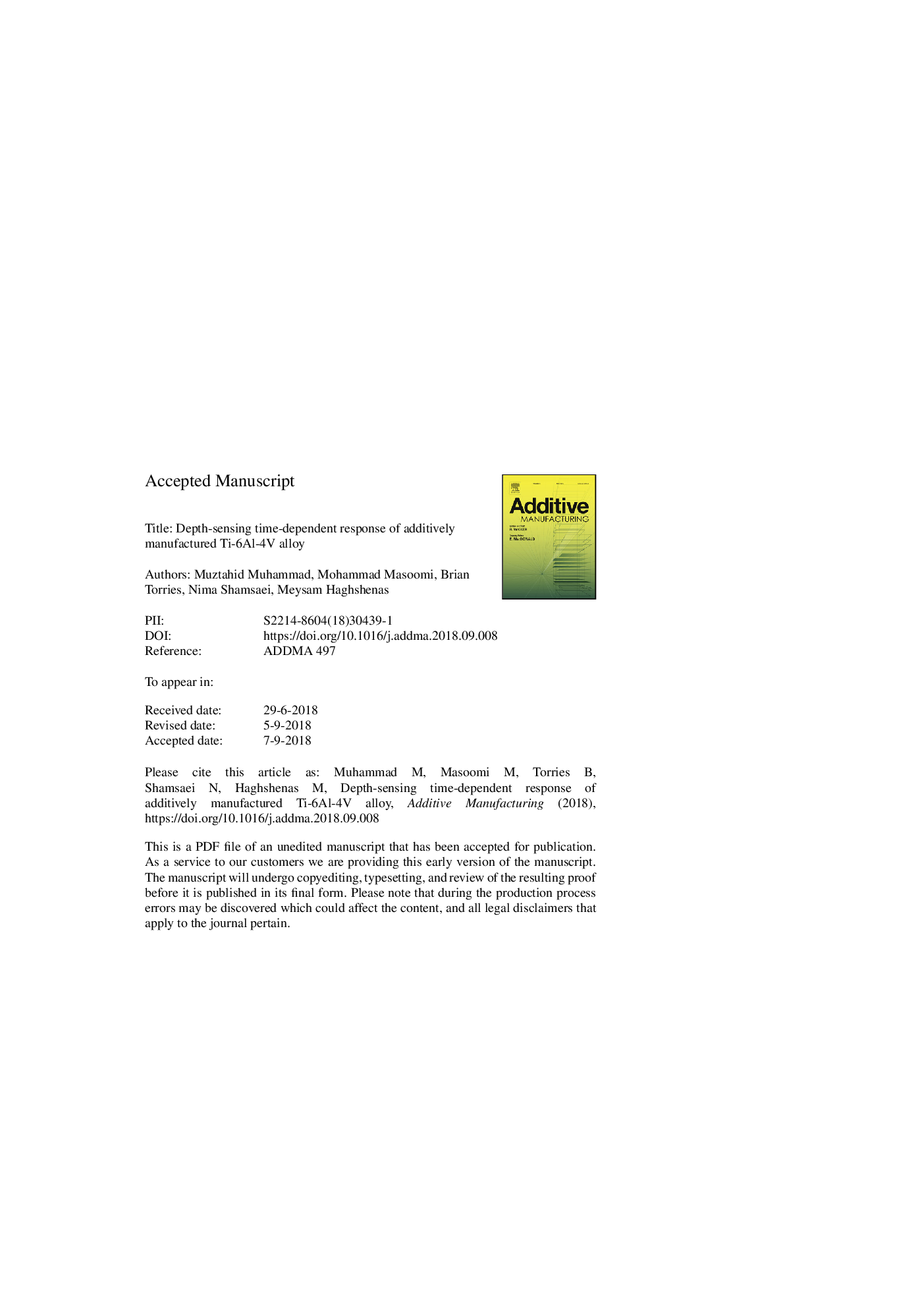| Article ID | Journal | Published Year | Pages | File Type |
|---|---|---|---|---|
| 10152744 | Additive Manufacturing | 2018 | 35 Pages |
Abstract
Depth-sensing (instrumented) indentation testing technique is a robust, reliable, convenient and non-destructive characterization method to study small-scale mechanical properties and rate-dependent plastic deformation in metals and alloys at ambient and elevated temperatures. In the present paper, depth-sensing indentation creep behavior of an additively manufactured, via laser powder bed fusion (L-PBF) method, Ti-6Al-4V alloy is studied at ambient temperature. Indentation creep tests were performed through a dual-stage scheme (loading followed by a constant load-holding and unloading) at different peak loads of 250âmN, 350âmN, and 450âmN with holding time of 400âs. Creep parameters including creep rate, creep stress exponent, and indentation size effect were analyzed, according to the Oliver and Pharr method, at different additive manufacturing scan directions and scan sizes. To assess processing parameter/ microstructure/ creep property correlations in the additively manufacture Ti-6Al-4V alloy, microstructural quantitative analyses (i.e. optical microscopy and scanning electron microscopy) were performed as well. The findings of this study, according to stress exponent values, showed that the controlling mechanism of the creep at ambient temperature for the examined L-PBF Ti-6Al-4V is mainly glide-controlled dislocation creep. These findings were compared against traditionally processed Ti-6Al-4V as well.
Related Topics
Physical Sciences and Engineering
Engineering
Industrial and Manufacturing Engineering
Authors
Muztahid Muhammad, Mohammad Masoomi, Brian Torries, Nima Shamsaei, Meysam Haghshenas,
